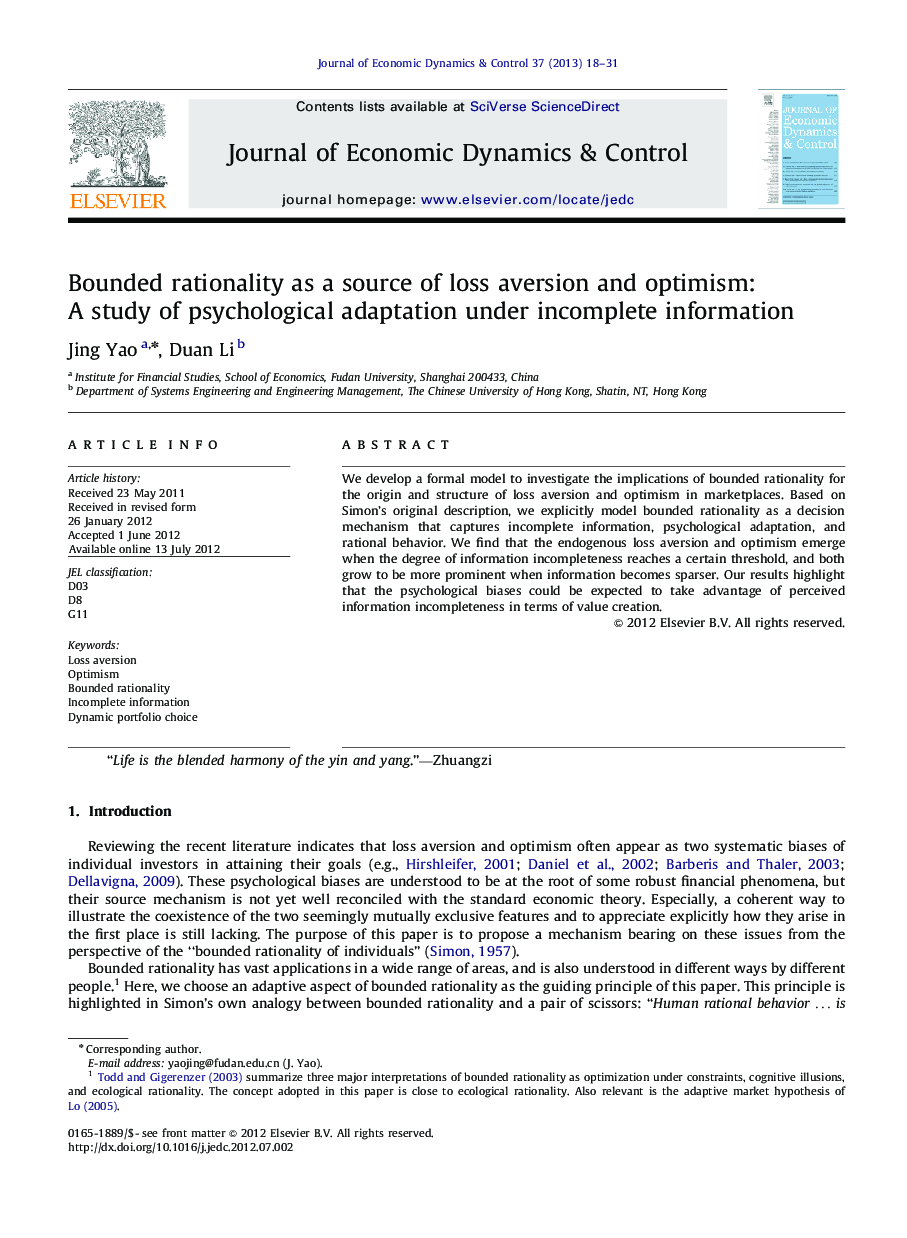| Article ID | Journal | Published Year | Pages | File Type |
|---|---|---|---|---|
| 5098808 | Journal of Economic Dynamics and Control | 2013 | 14 Pages |
Abstract
We develop a formal model to investigate the implications of bounded rationality for the origin and structure of loss aversion and optimism in marketplaces. Based on Simon's original description, we explicitly model bounded rationality as a decision mechanism that captures incomplete information, psychological adaptation, and rational behavior. We find that the endogenous loss aversion and optimism emerge when the degree of information incompleteness reaches a certain threshold, and both grow to be more prominent when information becomes sparser. Our results highlight that the psychological biases could be expected to take advantage of perceived information incompleteness in terms of value creation.
Keywords
Related Topics
Physical Sciences and Engineering
Mathematics
Control and Optimization
Authors
Jing Yao, Duan Li,
